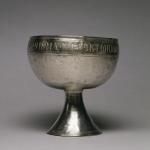“Please Hit ‘Subscribe’”! If you have received benefit from this or any of my other 4,600+ articles, please follow this blog by signing up (w your email address) on the sidebar to the right (you may have to scroll down a bit), above where there is an icon bar, “Sign Me Up!”: to receive notice when I post a new blog article. This is the equivalent of subscribing to a YouTube channel. Please also consider following me on Twitter / X and purchasing one or more of my 55 books. All of this helps me get more exposure, and (however little!) more income for my full-time apologetics work. Thanks so much and happy reading!
***
See my introductory article for this series. Excerpts from the Augsburg Confession (“AC”) will be identified and indented, in regular black font. Replies from the Catholic Confutation (“C”) will be in blue, and counter-replies from the Lutheran Apology of the Augsburg Confession (“AAC”) in green. Neither will be indented. My own comments will be in regular black font. My own scriptural citations will be drawn from the RSV.
***
Article XII. Of Repentance.
1 Of Repentance they teach that for those who have fallen after Baptism there is remission of sins whenever they are converted 2 and that the Church ought to impart absolution to those thus returning to repentance. Now, repentance consists properly of these 3 two parts: One is contrition, that is, 4 terrors smiting the conscience through the knowledge of sin; the other is faith, which is born of 5 the Gospel, or of absolution, and believes that for Christ’s sake, sins are forgiven, comforts 6 the conscience, and delivers it from terrors. Then good works are bound to follow, which are the fruits of repentance. . . .
They also are rejected who do not teach that remission of sins comes through faith but command us to merit grace through satisfactions of our own.
To Article XII. In the twelfth article their confession that such as have fallen may find remission of sins at the time when they are converted, and that the Church should give absolution unto such as return to repentance, is commended, since they most justly condemn the Novatians who deny that repentance can be repeated, in opposition both to the prophet who promises grace to the sinner at whatever hour he shall mourn, Ezek. 18:21, and the merciful declaration of Christ our Saviour, replying to St. Peter, that not until seven times, but until seventy times seven in one day, he should forgive his brother sinning against him, Matt. 18:22. But the second part of this article is utterly rejected. For when they ascribe only two parts to repentance, they antagonize the entire Church, which from the time of the apostles has held and believed that there are three parts of repentance—contrition, confession and satisfaction. Thus the ancient doctors, Origen, Cyprian, Chrysostom, Gregory, Augustine, taught in attestation of the Holy Scriptures, especially from 2 Kings 12, concerning David, 2 Chron 3:1, concerning Manasseh, Ps. 31, 37, 50, 101, etc. Therefore Pope Leo X of happy memory justly condemned this article of Luther, who taught: “That there are three parts of repentance—viz. confession, contrition, and satisfaction—has no foundation in Scripture or in Holy Christian doctors.” This part of the article, therefore can in no way be admitted; so, too, neither can that which asserts that faith is the second part of repentance, since it is known to all that faith precedes repentance; for unless one believes he will not repent. Neither is that part admitted which makes light of pontifical satisfactions, for it is contrary to the Gospel, contrary to the apostles, contrary to the fathers, contrary to the councils, and contrary to the universal Catholic Church. John the Baptist cries: “Bring forth fruits meet for repentance,” Matt. 3:8. St. Paul teaches: “As ye have yielded your members servants to uncleanness, even so now yield your members servants to righteousness unto holiness,” Rom 6:19. He likewise preached to the Gentiles that they should repent and be Converted to God, bringing forth fruits meet for repentance, Acts 20:21. So Christ himself also began to teach and preach repentance: “Repent, for the kingdom of heaven is at hand,” Matt. 4:17. Afterward he commanded the apostles to pursue this mode of preaching and teaching, Luke 24:47, and St. Peter faithfully obeyed him in his first sermon, Acts 2:38. So Augustine also exhorts that “every one exercise toward himself severity, so that, being judged of himself, he shall not be judged of the Lord,” as St. Paul says. 1 Cor. 11:31. Pope Leo surnamed the Great, said “The Mediator between God and men, the man Christ Jesus, gave to those set over the churches the authority to assign to those who confess the doing of penance, and through the door of reconciliation to admit to the communion of the sacraments those who have been cleansed by a salutary satisfaction.” Brose says: “The amount of the penance must be adapted to the trouble of the conscience.” Hence divere penitential canons were appointed in the holy Synod of Nice, in accordance with The diversity of satisfactions, Jovinian the heretic, thought, however, that all sins are equal and accordingly did not admit a diversity of satisfactions. Moreover, satisfactions should not be abolished in the Church, contrary to the express Gospel and the decrees of councils and fathers, but those absolved by the priest ought to perform the penance enjoined, following the declaration of St. Paul: He “gave himself for us, to redeem us from all iniquity, and purify unto himself a peculiar people, zealous of good works,” Tit. 2:14. Christ thus made satisfaction for us, that we might be zealous of good works, fulfilling the satisfaction enjoined.
My mentor, Servant of God Fr. John A. Hardon, in his Modern Catholic Dictionary, defined “Satisfaction” as follows:
The expiation of wrongdoing, especially the penance imposed by a priest before giving sacramental absolution. Essentially the satisfaction consists in the penitent’s willingness to accept the penance imposed and its actual fulfillment. The effect of these two elements is to remove more or less the temporal punishment due to the sins confessed.
They oppose the example of Adam, and also of David, who was punished for his adultery. . . . It has been said before that saints suffer punishments, which are works of God; they suffer contrition or terrors, they also suffer other common afflictions. Thus, for example, some suffer punishments of their own that have been imposed by God. And these punishments pertain in no way to the keys, because the keys neither can impose nor remit them, but God, without the ministry of the keys, imposes and remits them [as He will].
AAC thus allows for the notion of temporal punishment, at least in some cases, but with the proviso that it is only directly from God, and has nothing to do with the ministry of the keys (i.e., clergy / priests). As for temporal punishment itself, that is clearly a biblical doctrine. I would reply that these punishments are often overseen by human agents (in effect, acting as agents of assigned penances and of absolution).
So, for example, when Moses’ sister Miriam “spoke against Moses because of the Cushite woman whom he had married” (Num 12:1, RSV), God punished her with leprosy (12:6-10). That’s a temporal punishment for sin (not damnation). But it was not permanent, because Moses prayed for her to be healed (12:13), and she was after a time. This was literally Moses praying for an indulgence. The text implies that the leprosy wasn’t permanent as a result of the prayer. An indulgence simply mean a remission or relaxation of the temporal penalties for sin.
On several occasions, Moses atoned for his people and brought about an indulgence, so that they were not being punished for one of many sins of theirs (Ex 32:30-32; Num 14:19-23). In the latter case, God pardoned the iniquity of the Hebrews because Moses prayed for them. In Numbers 16:46-48, Moses and Aaron stopped a plague. That was an indulgence too, and the plague was a temporal punishment for sin. Phinehas, a priest, “turned back” God’s “wrath” (Num 25:6-13). The bronze serpent in the wilderness was an indulgence granted by God (Num 21:4-9).
King David wasn’t punished by death due to his sins of murder and adultery (as Saul was for his sins), but he still had a terrible temporal punishment to pay: his son was to die (2 Sam 12:13-14). In other words, part of his punishment was remitted (indulgence) but not all. Note that David was informed of his temporal punishment by the prophet Nathan, whom “the LORD sent . . . to David” (2 Sam 12:1). Nathan explained to David exactly what he did wrong, and pronounced the temporal punishment along with the indulgence: the remission of temporal punishment (2 Sam 12:1-14):
2 Samuel 12:13-14 . . . “The LORD also has put away your sin; you shall not die. [14] Nevertheless, because by this deed you have utterly scorned the LORD, the child that is born to you shall die.”
Thus, Nathan acted like a priest does: he offered partial absolution and indulgence and also proclaimed temporal punishment and, in effect, satisfaction that was to take place. St. Paul acts in the same manner in 1 Corinthians 5:5: “deliver this man to Satan for the destruction of the flesh, that his spirit may be saved” (cf. 5:1-4). Note how this procedure is directly connected to the man’s ultimate salvation. Penance or punishment of this sort exhibits God’s holiness and just nature, whereas forgiveness and indulgences extend His lovingkindness and mercy.
And so, accordingly, St. Paul offered an indulgence or relaxation of the temporal punishment for sin to the same person (see 2 Cor 2:6-11). Paul even uses the word “punishment” to describe the former penitential chastisement, in 2 Corinthians 2:6, and says that it is “enough” and urges the Corinthians to “forgive and comfort him . . . reaffirm your love for him” (the indulgence). This is not simply implicit or indirect proof. It’s explicit New Testament proof for temporal punishment, satisfaction, and indulgences. St. Augustine wrote along these lines:
And it is in the evils that every one suffers, not in the good things that he enjoys, that he has need of patience. The present life, therefore, whereof it is written,
Is not the life of man a term of trial upon earth?[Job 7:1] in which we are daily crying to the Lord,Deliver us from evil,[Matthew 6:13] a man is compelled to endure, even when his sins are forgiven him, although it was the first sin that caused his falling into such misery. For the penalty is more protracted than the fault; lest the fault should be accounted small, were the penalty to end with itself. On this account it is also, either for the demonstration of our debt of misery, or for the amendment of our passing life, or for the exercise of the necessary patience, that man is kept through time in the penalty, even when he is no longer held by his sin as liable to everlasting damnation. (Tractate 124 on the Gospel of John [John 21:19-25], 5)When you shall have been baptized, keep to a good life in the commandments of God so that you may preserve your baptism to the very end. I do not tell you that you will live here without sin, but they are venial sins which this life is never without. Baptism was instituted for all sins. For light sins, without which we cannot live, prayer was instituted. . . . But do not commit those sins on account of which you would have to be separated from the body of Christ. Perish the thought! For those whom you see doing penance have committed crimes, either adultery or some other enormities. That is why they are doing penance. If their sins were light, daily prayer would suffice to blot them out. . . . In the Church, therefore, there are three ways in which sins are forgiven: in baptisms, in prayer, and in the greater humility of penance. (Sermon to Catechumens on the Creed 7:15, 8:16)
The Council of Trent stated in 1551 (cited in the Catechism of the Catholic Church, #1460):
The satisfaction that we make for our sins, however, is not so much ours as though it were not done through Jesus Christ. We who can do nothing ourselves, as if just by ourselves, can do all things with the cooperation of “him who strengthens” us. Thus man has nothing of which to boast, but all our boasting is in Christ . . . in whom we make satisfaction by bringing forth “fruits that befit repentance.” These fruits have their efficacy from him, by him they are offered to the Father, and through him they are accepted by the Father.
*
Practical Matters: Perhaps some of my 4,600+ free online articles (the most comprehensive “one-stop” Catholic apologetics site) or fifty-five books have helped you (by God’s grace) to decide to become Catholic or to return to the Church, or better understand some doctrines and why we believe them.
Or you may believe my work is worthy to support for the purpose of apologetics and evangelism in general. If so, please seriously consider a much-needed financial contribution. I’m always in need of more funds: especially monthly support. “The laborer is worthy of his wages” (1 Tim 5:18, NKJV). 1 December 2021 was my 20th anniversary as a full-time Catholic apologist, and February 2022 marked the 25th anniversary of my blog.
PayPal donations are the easiest: just send to my email address: [email protected]. Here’s also a second page to get to PayPal. You’ll see the term “Catholic Used Book Service”, which is my old side-business. To learn about the different methods of contributing (including Zelle), see my page: About Catholic Apologist Dave Armstrong / Donation Information. Thanks a million from the bottom of my heart!
*
***
Photo credit: Portrait of Philipp Melanchthon (1537), by Lucas Cranach the Elder (1472-1553) [public domain / Wikimedia Commons]
Summary: Catholic-Protestant “dialogue” consisting of the Augsburg Confession (Lutheran, 1530), Catholic replies (then & now), & Philip Melanchthon’s counter-reply.














